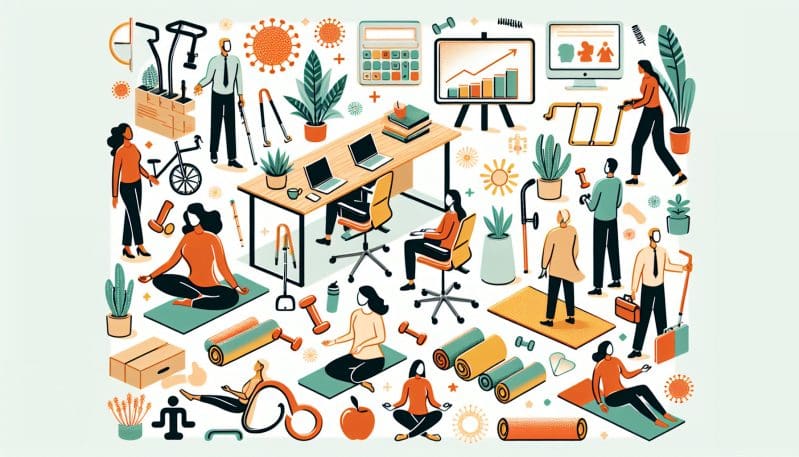Reimagining the Workplace Post-Pandemic: Flexibility, Wellness, and Inclusion
- Home
- Reimagining the Workplace Post-Pandemic: Flexibility, Wellness, and Inclusion

- Editors Desk
- January 11, 2024
- 0 Comments
The global workplace has undergone a seismic shift in the wake of the COVID-19 pandemic, challenging dated notions and ushering in an era that demands flexibility, prioritizes employee well-being, and champions inclusion. As the dust settles and we step into a world that has been irrevocably changed, it is imperative that we reimagine the concept of work and its execution to cater to the evolved needs of the workforce. At No Worker Left Behind, we are particularly attuned to the ramifications of these changes and are committed to ensuring that every worker benefits from them.
The onset of the pandemic forced us into the world’s largest work-from-home experiment. What we discovered was both revealing and transformative. Remote work is not just possible; for many, it has become preferable. The elimination of commutes has given employees back invaluable time, productivity has seen surprising upticks, and the global talent pool has broadened. However, this transition is not without its challenges. As the lines between work and life blur, creating policies that support a healthy balance has become crucial.
Governments and businesses have the opportunity—and responsibility—to collaborate in crafting policies that ensure workers are not left behind in this new virtual landscape. Flexibility has emerged as a cornerstone of modern work culture. Policies that accommodate remote work, flexible hours, and parental leave are no longer perks but expectations. Forward-thinking organizations are already implementing asynchronous work models and technology-based solutions to ensure that their employees can work efficiently from any location, at times that suit them best.
Yet, flexibility is only one piece of the puzzle. Employee well-being, often an overlooked aspect, now demands a front-seat. Mental health, in particular, has come to the forefront as an area in need of attention. Companies are investing in wellness programs, mindfulness training, and resources to support mental health, recognizing that a healthy workforce is a productive one. Governments can bolster these initiatives by providing guidelines for mandatory mental health leave and subsidies for wellness programs.
Inclusion is equally critical in the post-pandemic workplace. Marginalized groups, already at a disadvantage prior to the pandemic, must not be further sidelined. Inclusive policymaking and workplace design play pivotal roles here. Workplaces need to be redesigned to be not just physically accessible, but also conducive to collaboration amongst diverse groups. A blend of personal workspaces and communal areas can help cater to individual work preferences while fostering a sense of community. Technology can bridge gaps, ensuring that all voices are heard and valued, irrespective of geographical location.
Moreover, companies are finding that diversity is not just a social responsibility, but a business imperative. Diverse teams are more innovative, empathetic, and representative of the global customer base. To this end, businesses are striving to create diversity-focused roles, driving recruitment policies that aim for representation and equity, and encouraging diverse leadership.
At No Worker Left Behind, we understand that the best practices for creating inclusive and supportive workplaces are those that consider the holistic needs of the workforce. Businesses that celebrate diversity, promote psychological safety, and provide flexibility are the ones that will thrive in this new era. As an organization that mirrors the aspirations of The World Economic Forum with a specific focus on Work, Worker, and Workplace, we are dedicated to shaping a future where inclusivity, wellness, and flexibility are not just buzzwords, but the foundation of all working environments. Let us work together to build a world where no worker is left behind—where every workplace is a beacon of diversity, every policy a testament to empathy, and every innovation a step towards inclusiveness. Our collective future depends on it.
Choose Layout
Main Color Scheme
- RTL Version
- LTR Version
